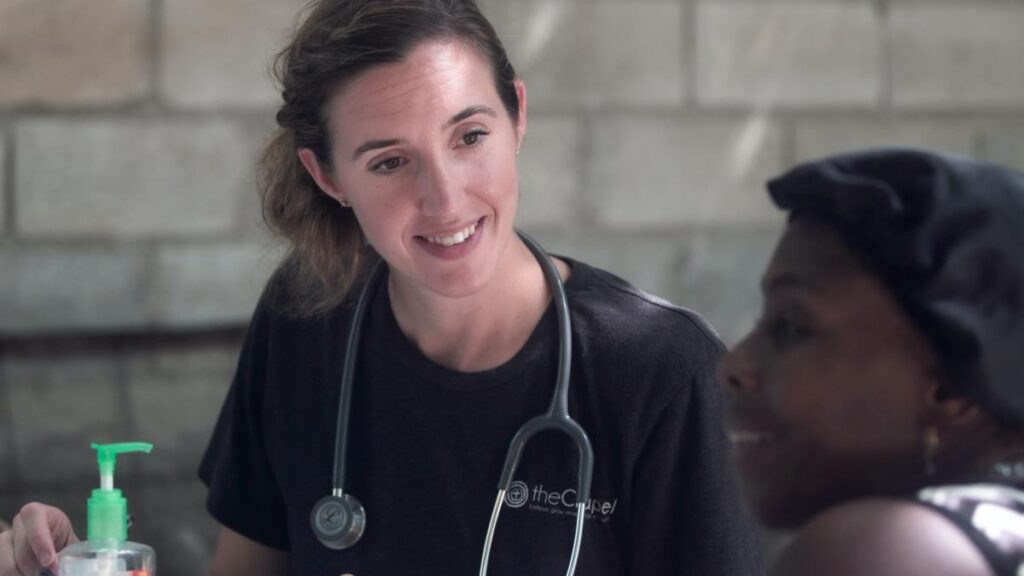
HBCU Public Health Programs Help Address Disparities in Healthcare
MPH programs at historically Black colleges and universities combat inequality [...]

There have always been skilled Black nurses—Harriet Tubman and Sojourner Truth are among history’s most famous—but there was a time when Black Americans were not allowed to attend white-run nursing programs. Historically Black colleges and universities (HBCUs) stepped up to train Black nurses, beginning with the nation’s first predominantly Black nursing school at Tuskegee University (established in 1892). Today, many of the best HBCUs house highly regarded nursing programs whose approach to nursing education acknowledges the history of Black nursing, the contribution of Black nurses, and the persistence of racial bias in the US and its ramifications.
HBCU nursing programs are no longer the only places that Black nurses can train, nor are they Black-only institutions. Today, these programs attract Latino students, other minority students, white students, and, of course, Black students. These nursing schools meet the needs of today’s aspiring nurses through online nursing programs, accelerated and RN-to-BSN nursing programs, and programs designed to meet the needs of working adults.
There are more than 40 HBCU degree programs for nurses in the US. Howard University’s College of Nursing and Allied Health Sciences (which has BSN, MSN, and post-master’s certificate programs) is arguably home to the best of them, but all are worth checking out.
In this article about HBCU nursing programs, we cover:
Society hasn’t eliminated discrimination, bias, and prejudice; structural inequality still exists in higher education and nursing. HBCUs continue to provide a haven in which Black students can thrive—particularly in STEM and the health sciences, where people of color are often underrepresented. One ongoing Gallup study found that Black students feel more supported at HBCUs. Survey respondents expressed confidence that:
More than half of the survey participants noted that HBCUs provided experiential learning opportunities and a support system after graduation.
Students noted that they had a mentor figure at their school, particularly those that cared for them as a person and helped guide their career aspirations.
Opportunities like extracurricular activities and internships offered unique opportunities to hone in on their unique career path.
While HBCUs make up just three percent of colleges and universities in the US, they produce 27 percent of Black graduates in STEM fields.
Support is just one factor. HBCU nursing programs also tend to be budget-friendly. Across programs, HBCU tuition is about 30 percent lower than that of comparable non-HBCU institutions. HBCUs also welcome—and offer substantial support to—low-income and first-generation college students, two groups who often find it hard to be admitted to college, secure financial aid, and graduate. In Howard University’s nursing program, for instance, 80 percent of students are the first in their families to attend college. Finally, HBCU students graduate with less debt, meaning they don’t launch their nursing careers burdened by large student loan payments.
There are just over 100 HBCUs in the United States—from two-year community colleges to four-year liberal arts programs—-compared to thousands of predominantly white institutions. However, just because they were founded to create a place for Black students to learn and grow doesn’t mean they all approach education the same way. HBCUs with BSN and MSN programs structure those programs differently and have different requirements students have to meet. They may or may not offer doctoral nursing programs.
What HBCU nursing programs do have in common is that they speak to and celebrate Black empowerment; they are more likely to include minority concerns and perspectives in coursework; and, their curricula don’t gloss over racial issues in medicine.
There are only about 40 HBCUs with nursing programs, making them somewhat rare. Excellent HBCU nursing programs include:
Founded in 1977, the School of Nursing is home to accredited Associate of Science in Nursing, Bachelor of Science in Nursing, Master of Science in Nursing, and Doctor of Nursing Practice programs. Alcorn State University is distinguished by its state-of-the-art educational facilities and its students’ high National Council Licensure Examination for Registered Nurses (NCLEX-RN) pass rates and post-graduate employment rates. Alcorn State University nursing programs also specifically address inequity in healthcare and the impact of culture and diversity on the delivery of healthcare in the curricula.
Established just after the Civil War in 1865, Bowie State University has an undergraduate nursing program—including an accelerated BSN program—and a graduate nursing program with Family Nurse Practitioner and Nurse Educator tracks. The school provides nursing students access to cutting-edge virtual simulation technology, including a simulation laboratory that takes students through realistic computer-generated medical scenarios and Noel, a “pregnant” mannequin that simulates gestation through childbirth. In its program guide, the Department of Nursing notes that it is “committed to increasing diverse representation in the nursing profession.”
FAMU, or Florida A&M University, is the fifth-largest HBCU in the United States; its nursing program has been in existence for 80 years. The School of Nursing offers a Bachelor of Science in Nursing, a fast track for RN-BSN that can be completed in three semesters, and a Master of Science in Nursing for post-baccalaureate nurses. The FAMU MSN, which can be completed either on-campus or online as a full-time or part-time program, is designed to prepare students “for advanced practice in primary health care with adults across the lifespan.” An Adult Gerontology Primary Care Nurse Practitioner (AGPCNP) program focuses on primary care for adults.
This private HBCU in Virginia was founded after the Civil War in 1868. The Hampton University School of Nursing has operated for over 100 years. Today, it offers traditional and accelerated BSN options; master’s degrees geared toward aspiring nurse practitioners, nurse administrators, and nurse educators; a Doctor of Nursing Practice (DNP) program; and a nursing PhD focused on family and family-related nursing research. Flexibility is one of the hallmarks of Hampton University School of Nursing programs. The school offers a one-year RN-to-BSN and a two-year part-time RN-to-BSN online. Most courses can be taken online.
Founded in 1969, the nursing school at Howard University offers a Bachelor of Science in Nursing (with LPN-to-BSN and RN-to-BSN options), a Master of Science in Nursing, and a Post-Master’s nursing certificate. Howard was rated the second-top HBCU in the country by US News and World Report in 2022.
Students in the MSN program can choose between a Family Nurse Practitioner track and a Nurse Educator track. The Department of Nursing at Howard tackles issues like homelessness and elder care in both the undergraduate and graduate curricula. It partners with clinics and healthcare institutions in Haiti, South Africa, and Cuba. The school actively encourages students from underrepresented population groups to earn nursing degrees.
Founded in 1891, NCAT offers three varieties of bachelor’s degrees in nursing: the traditional BSN, an accelerated second degree for non-nurses with bachelor’s degrees, and the BSN completion track for licensed RNs. Class sizes are small, students have access to state-of-the-art technology, and flexible scheduling options make it easier for working professionals to earn a BSN. NCAT offers one of the most affordable nursing programs in the country. It boasts an impressive 100 percent job placement rate.
The Department of Nursing at North Carolina Central University was established in 1948. The school’s RN-to-BSN program was launched in 1961, making it one of the first schools in the US to offer a bachelor’s degree in nursing for nurses with associate’s degrees and diplomas. Today, North Carolina Central University offers a traditional BSN program, an accelerated BSN option, an RN-to-BSN option, and a BSN option just for veterans. Students have access to clinical experiential learning opportunities at local healthcare facilities, including hospitals, clinics, long-term care facilities, and health departments, as well as a state-of-the-art learning simulation center at Eagle General Hospital.
This HBCU is the largest producer of Black nurses in the nation. It offers four nursing degrees: a BSN, an MSN, a DNP, and a PhD. The undergraduate program is nationally recognized for the academic performance of its students from disadvantaged backgrounds; its NCLEX-RN pass rates are higher than the national average. Additionally, Southern University and A&M College is known for producing the largest number of minority family nurse practitioners in the country. Students across programs can put what they learn into practice in clinical settings at the College of Nursing and Allied Health’s partner healthcare agencies.
Tuskegee University’s BSN program dates back to 1948, but the school has been training nurses for almost 130 years. Nursing students who choose this program can enroll in the traditional BSN pathway or the RN-to-BSN pathway—both of which emphasize robust clinical experiences at local doctors’ offices, hospitals, and community healthcare centers.
Like many other historically Black colleges and universities, Winston-Salem State University’s Department of Nursing offers a bachelor’s in nursing, a master’s in nursing, and a Doctor of Nursing Practice. What sets this program apart is how many pathways it offers. BSN students, for example, can enroll in the traditional path, an accelerated BSN path, an RN-to-BSN path, a paramedic-to-BSN path, and an LPN-to-BSN path. The nursing program curriculum also focuses on social justice and establishing equity of healthcare in underserved populations. Students are encouraged to take part in community health initiatives and to work toward reducing health disparities. Graduates of this historically Black nursing program earn some of the highest salaries in North Carolina.
Additional top nursing programs from HBCUs include those at Dillard University in New Orleans, Albany State University in Georgia, and Bluefield State College in West Virginia.
Don’t assume that HBCU nursing programs are only for Black students. HBCUs are more diverse than most people realize. As of a few years ago, non-Black students made up 24 percent of HBCU enrollment.
The faculty at most HBCUs is also quite diverse. The National Center for Education Statistics found that 56 percent of full-time faculty members across 99 HBCUs were Black, 25 percent were white, 10 percent were Asian, and two percent were Hispanic.
That said, HBCU nursing programs can give aspiring Black nurses a strong start—and possibly a much better one than they’d receive at a predominantly white institution. Consider that about 40 percent of Black engineers, 50 percent of Black lawyers, 80 percent of Black judges, 13 percent of Black CEOs, and 40 percent of Black members of Congress graduated from HBCUs. Historically, HBCUs also have played an outsize role in helping Black students and people from diverse backgrounds enter the healthcare field.
(This article was updated on January 23, 2024)
Questions or feedback? Email editor@noodle.com

MPH programs at historically Black colleges and universities combat inequality [...]

There are still substantial diversity gaps in computer science, but [...]
Categorized as: Advanced Practice Nursing, Nursing & Healthcare